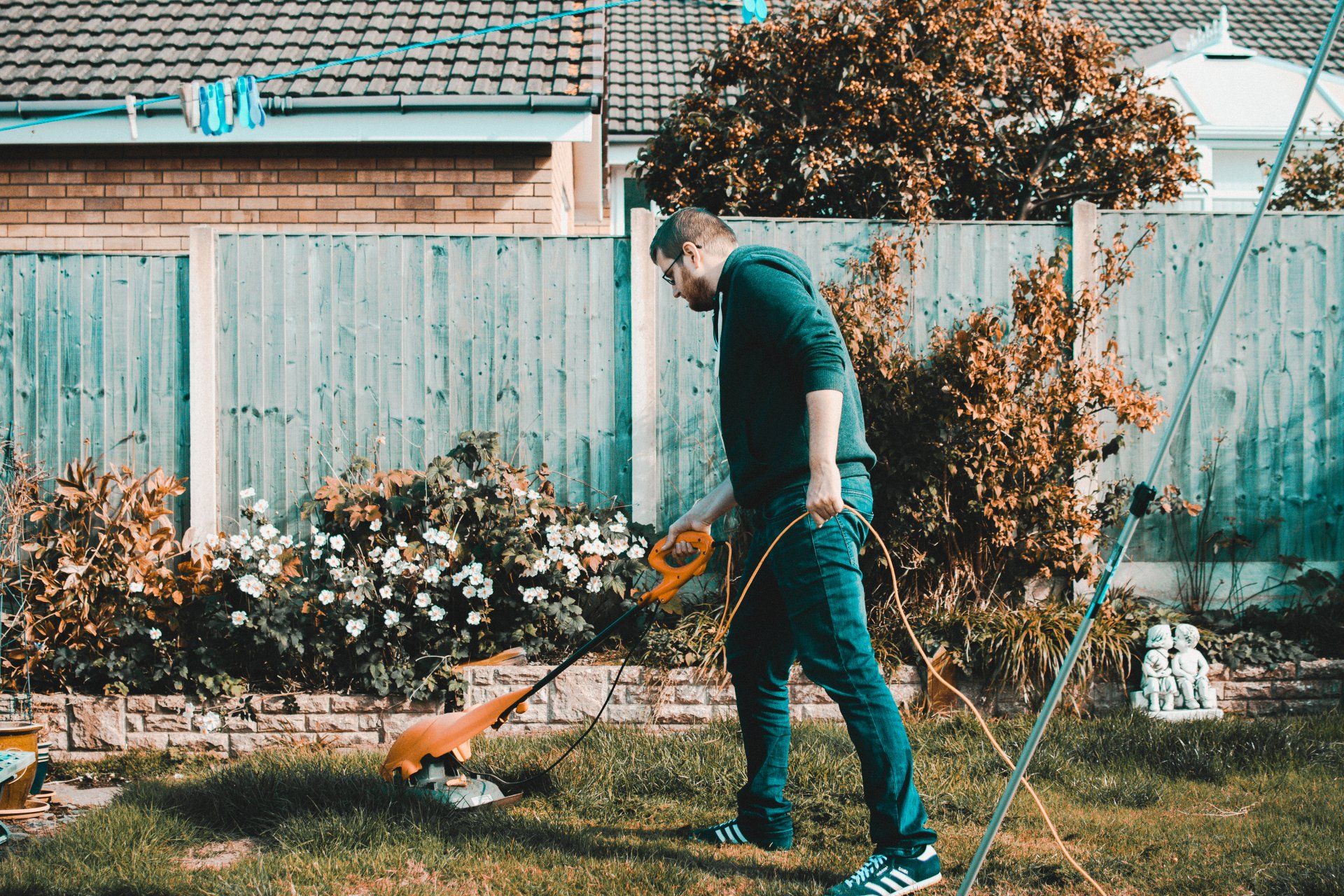More Customers for your Landscaping Business
A Landscaping website to showcase your work.

Here is a short story of a landscaper that is trying to get more clients online but doesn’t know where to start. He gets advice from a digital marketer. I hope you enjoy it!
Tom was a landscaper based in Sunward Park, Boksburg, who loved his job. He enjoyed transforming people’s gardens into beautiful and functional spaces. He had a lot of satisfied customers who praised his work and recommended him to their friends and family.
However, Tom wanted to grow his business and reach more potential clients. He knew that having a website was essential in the digital age, but he didn’t know how to create one or what to put on it. He felt overwhelmed by the technical aspects and the marketing strategies involved.
He decided to seek help from a digital marketing agency who specialized in landscaping websites. He found York Designs online and contacted him via email. The digital marketer, replied quickly and offered to have a free consultation with Tom.
They arranged a video call and Sam (Digital Marketer) asked Tom some questions about his business, his goals, and his challenges. Tom explained that he wanted to have a website that showcased his work, attracted more customers, and increased his revenue.
Sam listened carefully and nodded. He said that he understood Tom’s situation and that he could help him create a website that met his needs. He said that he had worked with many landscapers before and that he knew the best practices for creating a landscaping website.
He then shared his screen with Tom and showed him some examples of landscaping websites that he had designed for his previous clients. He pointed out the features and the benefits of each website and explained how they helped the landscapers achieve their goals.
He said that a good landscaping website should have:
- Clear and engaging content that speaks to the business and values of the landscaper. The content should communicate who the landscaper is, what they do, and why they are the best choice for their potential clients. It should also use headings, bullet points, and short paragraphs to make it easy to read and scan.
- Easy navigation that allows the visitors to find the information they need quickly and easily. The website should have a simple and intuitive menu, clear labels, and consistent layout to guide the visitors through the website. It should also have a search bar, a sitemap, and breadcrumbs to help them locate the pages they want.
- Mobile compatibility that ensures that the website looks good and works well on any device. The website should use a responsive design that adapts to different screen sizes and orientations. It should also pass the Google Mobile-Friendly Test to check how it performs on mobile devices.
- Strong and relevant imagery that captures attention, conveys emotion, and showcases the work of the landscaper. The website should use high-quality images that reflect the style, expertise, and professionalism of the landscaper. It should also use a slider, a gallery, or a portfolio to display the best landscaping projects.
- Online forms that allow the potential customers to contact the landscaper and request a quote, a consultation, or a service. The website should use online forms that ask for basic information like name, email, phone number, and message. It should also use tools like online Scheduling to allow the visitors to book appointments with the landscaper online.
- A strong brand identity that reflects the unique personality, values, and vision of the landscaper. The website should use a logo, a color scheme, a font style, and a tone of voice that match the brand identity of the landscaper. It should also use a catchy slogan, a mission statement, or a story to convey the message of the landscaper.
- Search engine optimization (SEO) that helps the website rank high on Google and other search engines so that more people can find it online. The website should use keywords, titles, meta tags, headings, and alt text to describe the content and make it relevant for the target audience. It should also use tools like Google Analytics or SEMrush to track the website performance and improve it.
Sam then asked Tom if he had any questions or comments about what he had shown him. Tom said that he was impressed by Sam’s work and that he liked what he saw. He said that he felt more confident about creating a website for his business.
He asked Sam how much it would cost him to hire him as his digital marketer. Sam said that he charged R5000 for designing a basic landscaping website with five pages: Home, About Us, Services, Portfolio, and Contact Us. He said that he could also offer additional services like content writing, image editing, logo design, SEO, social media marketing, email marketing, etc., for an extra fee.
Tom said that he was interested in working with Sam and that he wanted to get started as soon as possible. Sam said that he was happy to hear that and that he would send him an invoice and a contract via email. He said that he would need some information from Tom like his business name, logo, images, testimonials, etc., to create his website.
He also said that he would keep in touch with Tom throughout the process and that he would deliver his website within two weeks. He thanked Tom for choosing him as his digital marketer and said that he looked forward to working with him.
Tom thanked Sam for his time and his expertise and said that he was excited to see his website. He said that he hoped that his website would help him grow his business and reach more clients online. He said goodbye to Sam and ended the call.
He felt a surge of optimism and enthusiasm as he imagined how his website would look like and how it would boost his business. He couldn’t wait to see the results of Sam’s work and to share it with the world. He knew that he had made the right decision by hiring Sam as his digital marketer. He knew that he was one step closer to achieving his goals.
Why get a website for your business
A landscaping website is a great way to showcase your work, attract new customers, and grow your business. However, not all websites are created equal. You need to follow some best practices to make sure your website is effective and appealing. Here are some tips on how to create a landscaping website that stands out:
- Use clear and engaging content that speaks to your business and values. You want to communicate who you are, what you do, and why you are the best choice for your potential clients. You can use headings, bullet points, and short paragraphs to make your content easy to read and scan. You can also use testimonials, reviews, and awards to build trust and credibility.
- Make your website easy to navigate. You want your visitors to find the information they need quickly and easily. You can use a simple and intuitive menu, clear labels, and consistent layout to guide your visitors through your website. You can also use a search bar, a sitemap, and breadcrumbs to help them locate the pages they want.
- Make your website mobile compatible. More and more people are using their smartphones and tablets to browse the web. You want to make sure your website looks good and works well on any device. You can use a responsive design that adapts to different screen sizes and orientations. You can also use tools like [Google Mobile-Friendly Test] to check how your website performs on mobile devices.
- Use strong and relevant imagery. Images are powerful tools to capture attention, convey emotion, and showcase your work. You want to use high-quality images that reflect your style, expertise, and professionalism. You can use a slider, a gallery, or a portfolio to display your best landscaping projects. You can also use images of yourself, your team, and your equipment to personalize your website.
- Include online forms for potential customers to contact you. You want to make it easy for your visitors to get in touch with you and request a quote, a consultation, or a service. You can use online forms that ask for basic information like name, email, phone number, and message. You can also use tools like [Calendly] or [Acuity Scheduling] to allow your visitors to book appointments with you online.
- Create a strong brand identity. You want your website to reflect your unique personality, values, and vision. You can use a logo, a color scheme, a font style, and a tone of voice that match your brand identity. You can also use a catchy slogan, a mission statement, or a story to convey your message.
- Optimize your website for search engines. You want your website to rank high on Google and other search engines so that more people can find you online. You can use keywords, titles, meta tags, headings, and alt text to describe your content and make it relevant for your target audience. You can also use tools like [Google Analytics] or [SEMrush] to track your website performance and improve it.
These are some of the best practices for creating a landscaping website that drives more business. I hope you find them useful and inspiring. If you need more help or guidance on how to use a landscaping website to get more clients. Contact us and we will be happy to assist you.
They are full of creative ideas and features that you can apply to your own website.
Thank you for visiting York Designs. Have a wonderful day! 😊
FREE APP DEVELOPMENT PROMO

Free Website Development Today
Get our A.I powered website for free. That's right, no development fees will be charged. Limited customers will be taken. Get yours now. An awesome website is only the beniing. But it's a good start.
Contact Us
Don't be a stranger!
26 Bonito Crescent Delmore gardens
082 078 8979
Adanyork@yorkdesigns.co.za
Support@yorkdesigns.co.za
Yorkdesigns360@gmail.com













